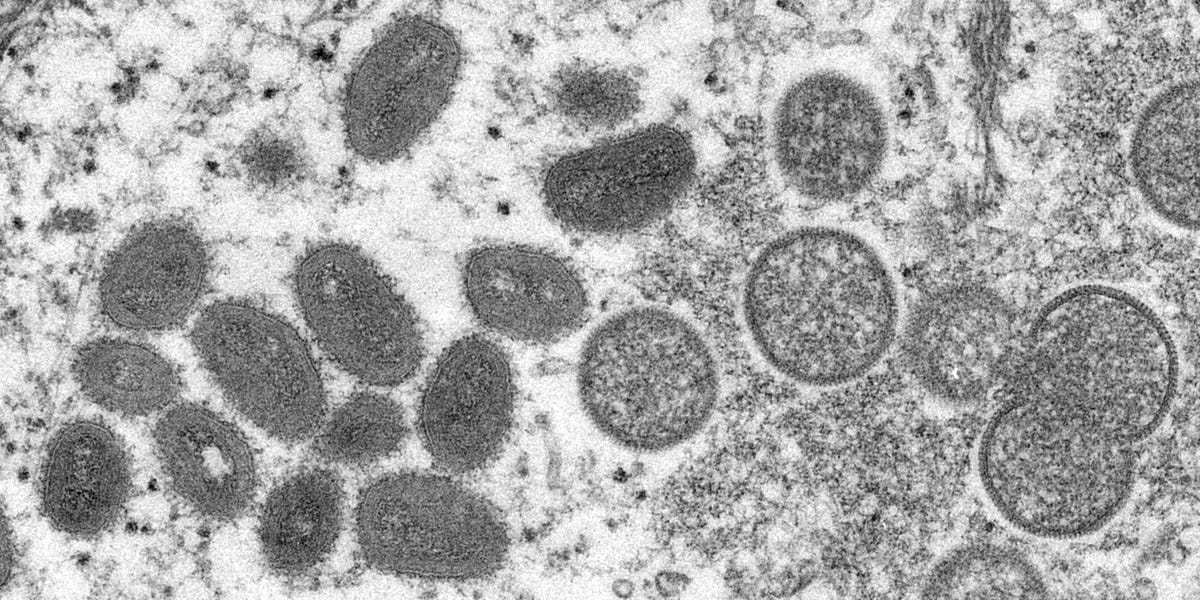- A new strain of the monkeypox virus is “the most dangerous” yet and could pose a global threat, experts say.
- The new clade Ib virus emerged in the Democratic Republic of Congo and spread to the Rwandan border.
- According to experts, this mpox variant is spreading in a “worrying” way and could even end up on a plane.
A deadly and fast-spreading new variant of MPOX, the disease caused by the monkeypox virus, has health officials around the world sounding the alarm.
The new virus is “undoubtedly the most dangerous of all known mpox strains,” John Claude Udahemuka, a lecturer at the University of Rwanda, said at a news conference on June 25. He said the virus has caused miscarriages and blindness.
An earlier, milder form of mpox — called clade IIb — circulated globally in 2022, eventually infecting more than 32,000 people in the U.S. and killing 58 of them. It prompted the World Health Organization to declare a public health emergency, which ended last year.
The new virus is called clade Ib, because it is a mutation of an even earlier form of mpox. It first appeared in a remote area of the Democratic Republic of Congo in September and has spread to towns along the Rwandan border, near Burundi and Uganda.
Experts fear the new clade Ib virus could cause a global outbreak, but they are not warning of a pandemic.
“The pandemic question is a difficult one,” Trudie Lang, director of the Global Health Network at the University of Oxford, said at the briefing.
“I think we really need to be vigilant now and try to contain this as quickly as possible in this region,” she added. “There is certainly a chance that this could end up on a plane.”
The new mpox strain spreads easily
Mpox spreads through close contact, especially skin-to-skin contact. It can cause flu-like symptoms and a painful or itchy rash that develops into pus-filled blisters, lesions, and eventually crusts.
Earlier strains of the virus had limited transmission potential. The clade I virus that has long circulated in the DRC is primarily associated with family and household transmission, Land said. The clade IIb virus that has spread globally was primarily sexually transmitted and primarily affected men who have sex with men.
The new clade Ib strain seems to be able to do it all.
It began spreading through sexual transmission, via the local sex industry, the researchers said. However, they said the new virus was also spreading within households, between mothers and their children, and there have even been cases of person-to-person spread. outside households and without sexual contact.
That’s “extremely concerning,” Lang said, because it has more potential to spread than previous strains.
The clade I form of the virus, from which the new strain emerged, is also more deadly than clade II. Some outbreaks have killed up to 10% of sick people, according to the WHO.
Researchers see only ‘the tip of the iceberg’
It is not yet clear how deadly the new clade Ib virus is, as researchers are not sure how many cases there are.
Leandre Murhula Masirika, research coordinator at the DRC’s local health service, said during the briefing that more than 600 cases have been identified so far.
“These are the serious cases that end up in hospital, so this is just the tip of the iceberg,” Lang said.
WHO’s technical lead for mpox, Rosamund Lewis, also sounded the alarm last week. According to Reuters, she said: “There is an urgent need to address the recent increase in mpox cases in Africa.”
The researchers said they need to better understand the virus to identify appropriate safety measures and vaccines to curb its spread.
“We first need to do serological and immunological studies to determine which vaccination we can propose,” said Murhula Masirika.
He added that in the meantime, he wants to give the smallpox vaccine to local sex workers and health care workers in the hope that it will provide some immunity against mpox.
